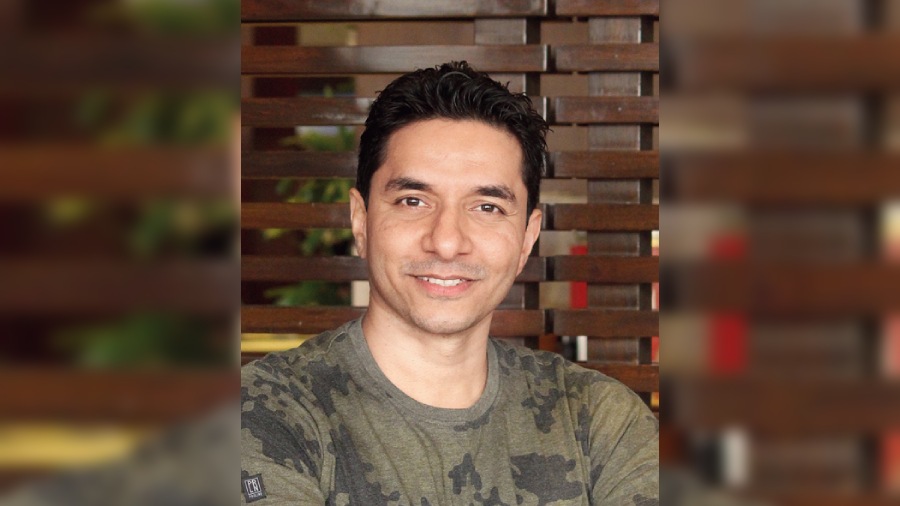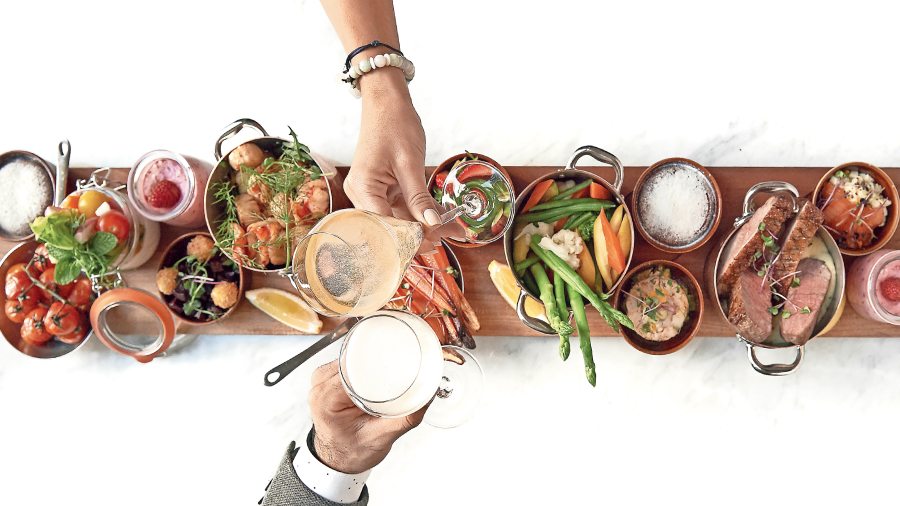All of us have greed within us. It is one of the seven deadly sins. The problem arises when we become a slave of greed and it dictates our habits and living.
One such greed is the greed for food. The greed to stuff ourselves with more food than we need, like there is no tomorrow. Human beings are the only species that eat despite not feeling hungry. So much of our lives revolve around food that it is no longer a source of nourishment, but entertainment and a coping mechanism. This is what is slowly getting us addicted to food.
This is different from being a foodie. There is nothing wrong with being a foodie, but when everything in your life is revolving around food and you are eating more than what your body needs, it is an unhealthy addiction.
Eat but why must you overeat?
Greed and gluttony is the main reason most people are sick today. When people overeat, they are quick in blaming food and making it their enemy, not their habit. Rice is fattening! Bananas make me put on weight! Ghee is bad for your heart! Whereas, there are people who eat all of this and more and yet have ripped bodies and clean blood reports.
What changed?
The person eating them and their lifestyle. If you eat heaps of rice, down several bananas because of pure gluttony, and overload on ghee, it is bound to affect your health. Who is to be blamed? Is it the food or is it you? Some of the healthiest people on this planet eat everything but in balance and moderation, and with pure happiness.

How do we know overeating is bad?
Notice how your body feels. It is not natural to overeat. Your stomach is meant to carry food of a certain quantity, not beyond that. Just like excess fuel in a car can create trouble, when we overeat our hormones get out of whack, there is neuro excitement in the brain (followed by a crash), insulin and blood sugar levels become unstable and our digestive system needs to work harder to break down the excess food.
Our bodies are just not designed to digest excess food. There is a certain requirement for our body based on the amount of energy we spend physically, emotionally, and mentally. If your body is fed anything over and above that, it will be a challenge for your body to break it down in the right manner. So here are some ways that can help you overcome your food addiction.
Improve your relationship with food
No matter what strategies we apply to overcome addiction, the bottomline is food addictions stem from a poor relationship with food. A bad relationship serves no one, whether it’s with the person or the food. What kind of relationship do you have with certain foods? Are you labelling certain foods as fattening or bad? Our relationship with food can unknowingly be the biggest obstacle to managing food addictions.
Consider a piece of chocolate cake. We’ve all enjoyed it while growing up. Now when you label a chocolate cake or an ice cream as something bad or fattening, then, subconsciously, every time you eat that piece of chocolate cake or ice cream, it’s going to behave exactly the way you have visualised it, i.e., fattening.
We need to change our mindset, belief system, attitude, and the way we think and the way we relate to food. The Swiss eat on an average six to eight pieces of chocolate every single day. They’ve grown up with that and their body adapts to it completely well. They have a good relationship with chocolate, so it doesn’t impact them. Chill, calm down, and make peace with food. Food is to nourish you, not stress you.
Another bad relationship to be in with food is to treat food as a coping mechanism for being sad, busy, bored, happy and stressed. That is the wrong kind of relationship to be in.
Such relationships don’t work out. If you are emotionally low, do something that feeds your soul, not your body. Similarly, if you are bored, fill your time with an activity that involves your body and mind. One needs to think outside of the culinary section.
Address emotions head-on
Having a bad day? A bad week? That bar of chocolate will not help you. It might give you a false sense of high due to sugar, but it will soon be followed by an unpleasant crash. Instead, feel the feelings of a bad day. Sit down in silence, go over all the feelings and take your learnings from it as you reflect on it. Then, move on. All of us need to be okay with bad days or difficult situations. No one is entitled to only have good and happy days. It’s the feeling of entitlement that creates our suffering because we suppress our feelings and then seek comfort through food.
Avoid restrictive patterns of eating
The more restrictive your eating habits are, the more likely you are to binge eat. Ask yourself these questions:
Does the food you eat make you feel psychologically deprived and restricted?
Does it leave you feeling happy?
Food is supposed to leave you feeling happy and blissful. If it makes you feel sad and deprived then it’s probably not a sustainable nutrition plan and you are bound to crave and desire foods that make you feel good. In the long run, these restrictions can create food addictions. This is precisely why it is necessary to strive for balanced eating.
Eat what you want, but in moderation. Of course, if you are dealing with specific lifestyle disease, then you have to eat according to your disease, but even then there is always a scope to add foods you truly enjoy without letting it impact your health. Ever read stories about people who have overcome food addiction? What worked for them? What do they eat now? Balanced diets?
Keep your environment conducive
The environment influences your habits. In case you are suffering from food addiction, you want to arrange your environment in such a way that you aren’t tempted all the time. Avoid easy access to food, steer clear of junk and be in the right company. If you are battling food addiction and are someone who frequents buffets, then you are not helping improve yourself. Buffets are a waste of food and resources and they make people overeat to get their value for money. Covid has shown us how basic and simple our needs are. When out in a restaurant, order what you need from the menu and eat that.

Embrace hunger
Too many of us eat just out of habit or convenience, not out of hunger. We are so used to eating all the time, constantly grazing, that even before your body completes digesting the last meal, it’s fed the next meal. Do we really need to eat that much? There is power in embracing hunger. This is different from starvation. This is how you practise it.
When you feel an urge to eat your next meal, wait for 10 minutes or so, and then wait for another 10 minutes, and then finally eat your meal. Experiencing hunger is beautiful because you then realise the difference between true physical hunger and emotional hunger or habitual hunger.
Hunger is also known to turn on certain genes that have a therapeutic effect on the body. This is also why smart fasting is revered as one of the ways to break food addictions (not eating disorders as that needs a different approach). Fasting makes one mindful of their hunger cues.
Having said that, every individual has their own reasons and struggles around food addiction. If none of the above-shared methods work for you, then it is recommended that you speak to a professional and discuss your concerns with them.
The author is an integrative and lifestyle medicine expert, holistic nutrition, and the founder of You Care — All about YOU
